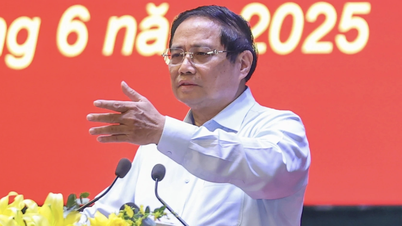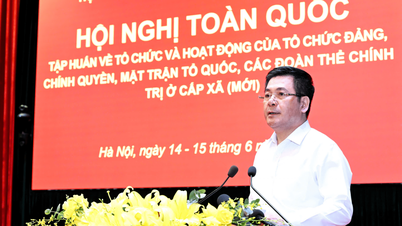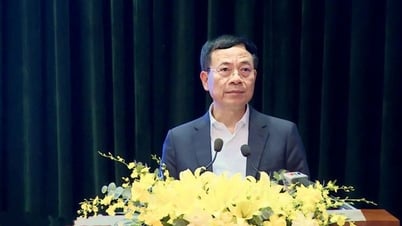After graduating from college last summer, Aroma Wu quickly realized that if she wanted to pursue a career in tech in China, a bachelor's degree wouldn't be enough and she would need to go back to school.
“My field of study is really competitive – most people have a Master's degree,” the 24-year-old worries.
To further her education, Wu decided to apply for a postgraduate degree in the UK and was soon offered a place. However, after a few weeks, Wu was forced to reconsider her decision after hearing more news from London.
 |
| UK universities are losing their appeal to Chinese students. (Source: Shutterstock) |
Tuition increase, visa tightening
In May 2025, the UK government began proposing an “education tax” of around 6% on international student tuition fees. It also began taking a tougher stance on immigration, proposing tighter rules on post-study work visas and permanent residency requirements.
“There were so many things going on at once. Tuition fees were going up, visas might be cut, and now there was a new tax? I was really taken aback,” Wu said. After considering the financial implications, the young woman decided to study in Hong Kong.
Tuition fees for a Master's degree in Technology in Hong Kong will cost more than 300,000 yuan (about 41,000 USD), but Wu estimates she will save about 100,000 yuan by studying in the UK.
“Tuition is not cheap, but I would rather save that money,” she said.
Wu's story partly reflects a common situation in China, where not only the US but also the UK is gradually losing its appeal to Chinese students, especially in the context of rising costs and tightening immigration regulations.
The UK has long been a popular choice for international students from China due to its highly regarded universities, which often rank high in global rankings, competitive tuition fees and short postgraduate programmes that often take just one year to complete.
Recent surveys have even shown that the UK has overtaken the US as the number one destination for Chinese students studying abroad. According to a report by New Oriental, a leading Chinese education company, this is partly because middle-class families still consider the European country to be more affordable and politically stable than Washington.
But it is clear that recent changes in the UK have put the country at a disadvantage. British universities are facing a financial crunch, forcing them to raise tuition fees for international students.
Like the Trump administration, the British government is also taking a tougher stance on immigration amid rising right-wing populism, especially after Prime Minister Keir Starmer warned that the country was at risk of becoming an “island of aliens”.
This is followed by new proposals to reduce the post-study work visa from two years to 18 months and increase the permanent residency threshold from five years to 10 years, making it harder for international students to settle in the UK after graduating.
There has been a significant increase in debate on social platforms Weibo and RedNote about whether a UK degree is really a worthwhile investment?
Aroma’s cousin Shirley Wu will start a Masters in Business at the University of Warwick this autumn. While she still wants to continue her studies in the UK, she has also looked at universities in Germany and Australia as backup options.
However, the international landscape is working in the UK's favour. While the country faces a range of economic challenges – from high youth unemployment to a large budget deficit – it is not alone.
Chinese graduates are facing similar pressures at home, where youth unemployment is even higher at 15.8%. Competition for places in domestic graduate programs has become so fierce that many students have no choice but to pursue their master’s degrees abroad.
Still a worthy choice
Guan Wen, an education expert in Shenzhen, remains optimistic about the prospects for UK universities. “The new policies in London have made students more cautious, but overall interest has not decreased significantly. This will not discourage Chinese students, as most of them want to return home after graduation,” he said.
According to Mr. Wen, the US is the country to worry about. The policies of the Trump administration are creating too much uncertainty - and stability is still the deciding factor for Chinese students studying abroad.
After graduating from a Chinese university, Ella Zhu, 24, still wants to pursue a postgraduate degree in the UK, despite the increasingly difficult new environment. She will be heading to Glasgow to start a one-year Masters programme this autumn.
Although she had been accepted into a state-owned enterprise in her hometown of Shandong, the young woman still wanted to find a better job. And further education was essential.
“To apply, I needed at least a Master's degree. Postgraduate schools in China are becoming more competitive and the UK seemed a more realistic option.”
Zhu considered other countries in the European Union (EU) - where tuition fees are often lower but Chinese employers tend to favour degrees from English-speaking countries.
“Even if the UK continues to increase tuition fees, we still have to try to invest if we want to find a good job back home,” Zhu said.
Source: https://baoquocte.vn/khong-rieng-my-quoc-gia-nay-cung-mat-dan-suc-hap-dan-voi-du-hoc-sinh-trung-quoc-317057.html



































































































Comment (0)